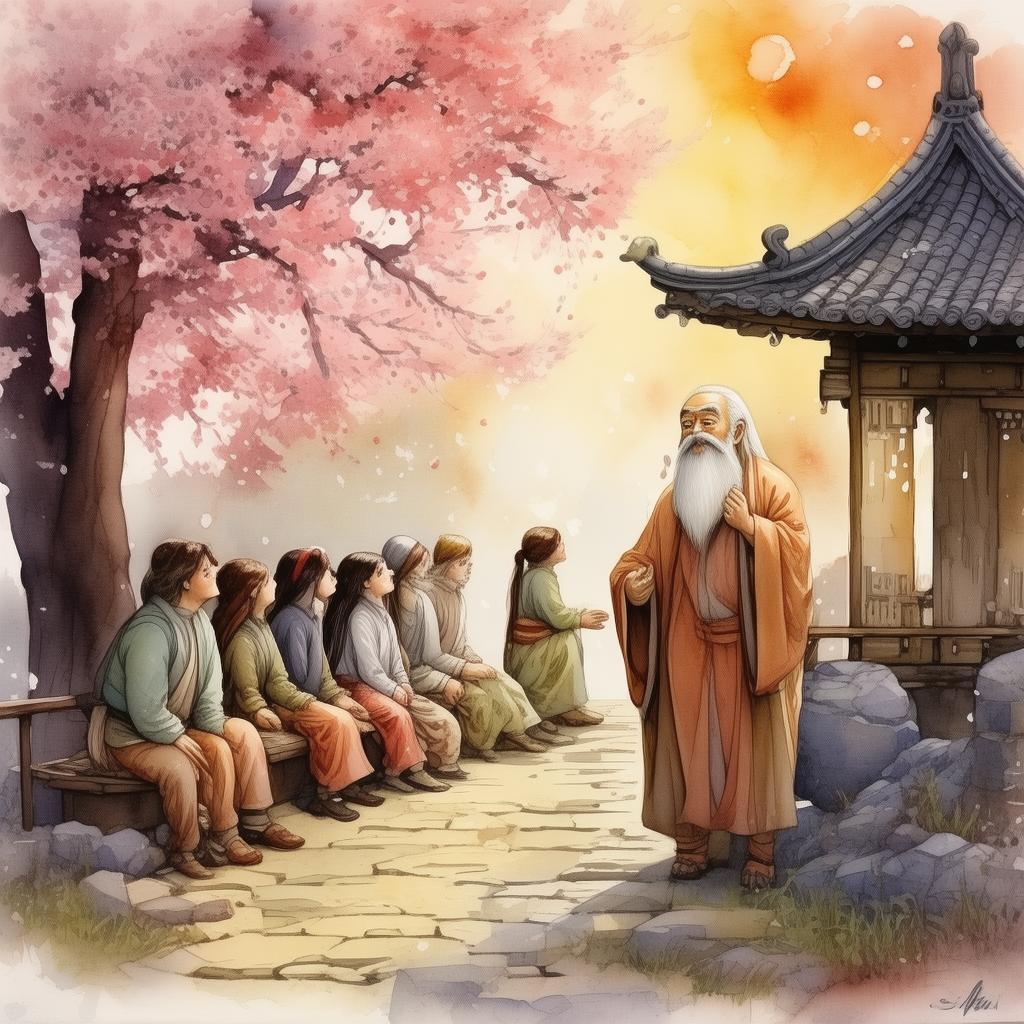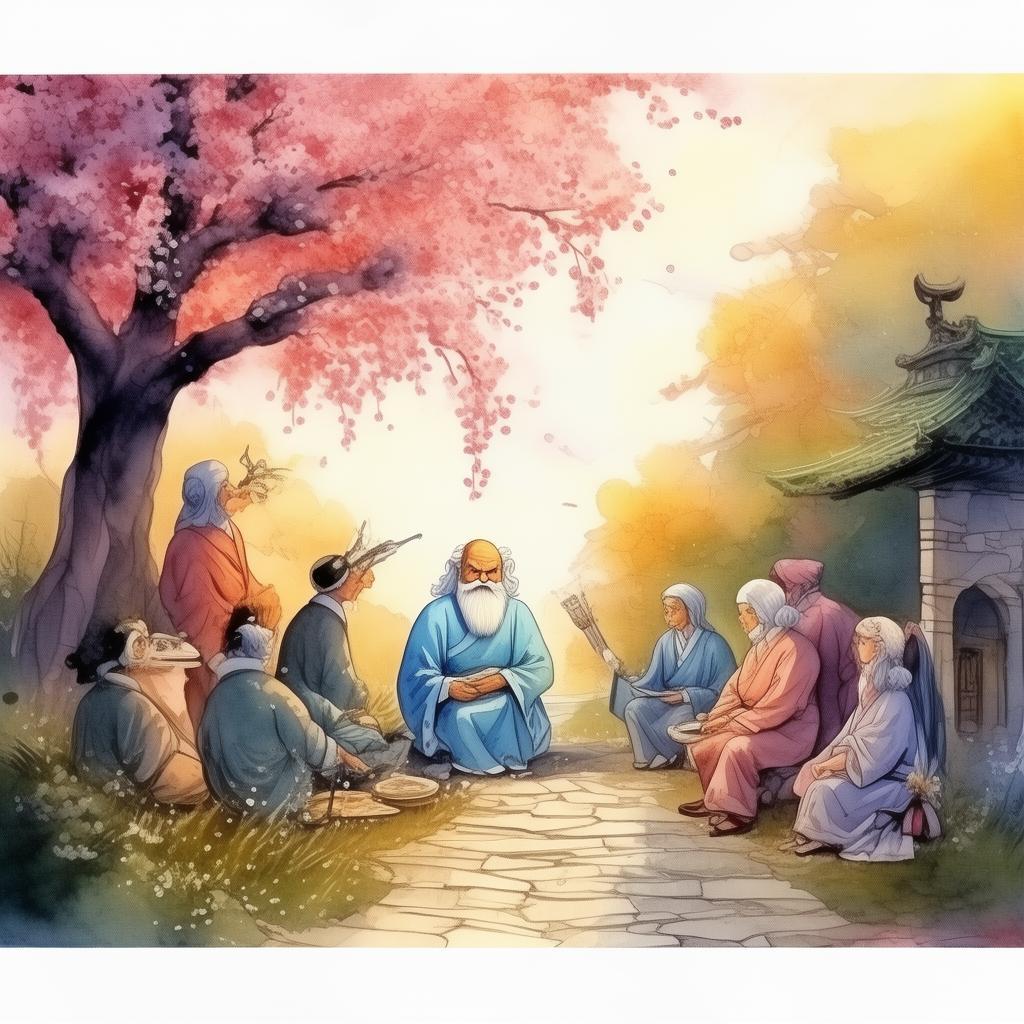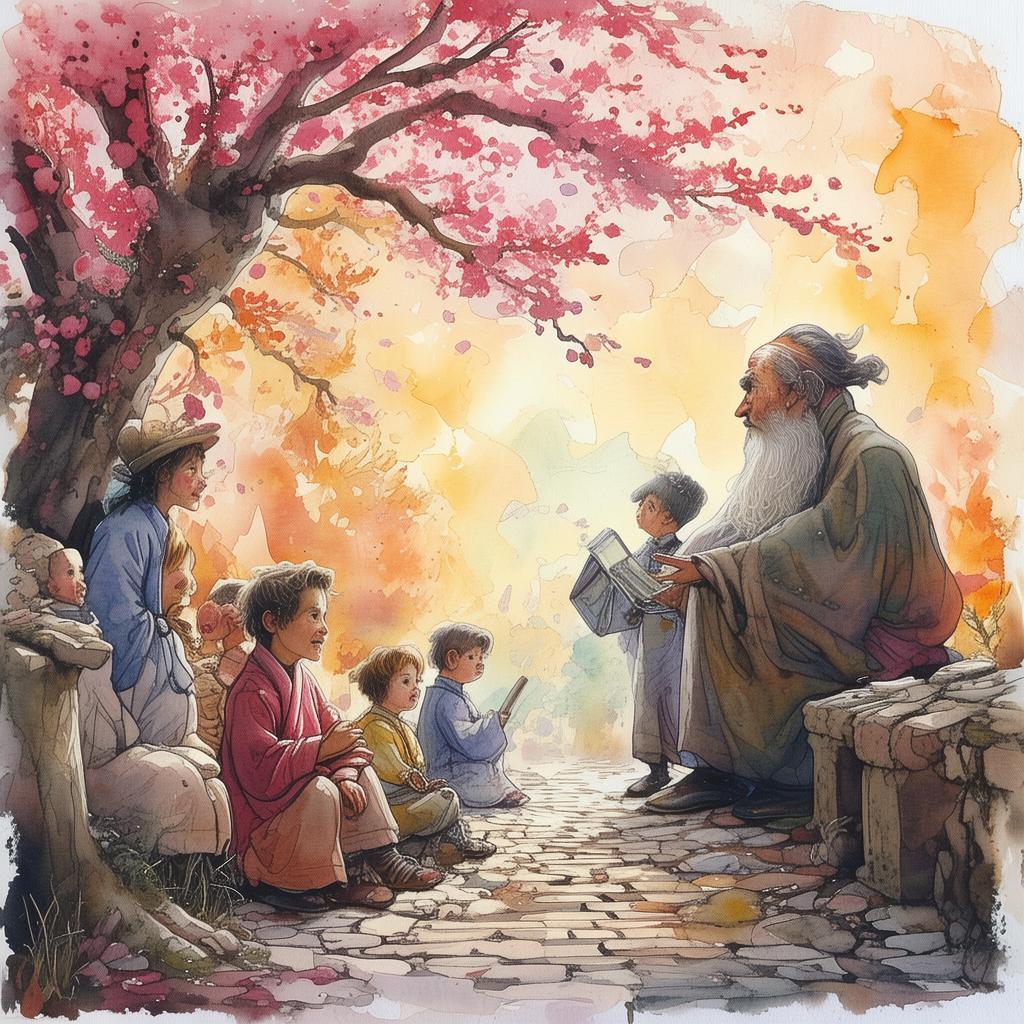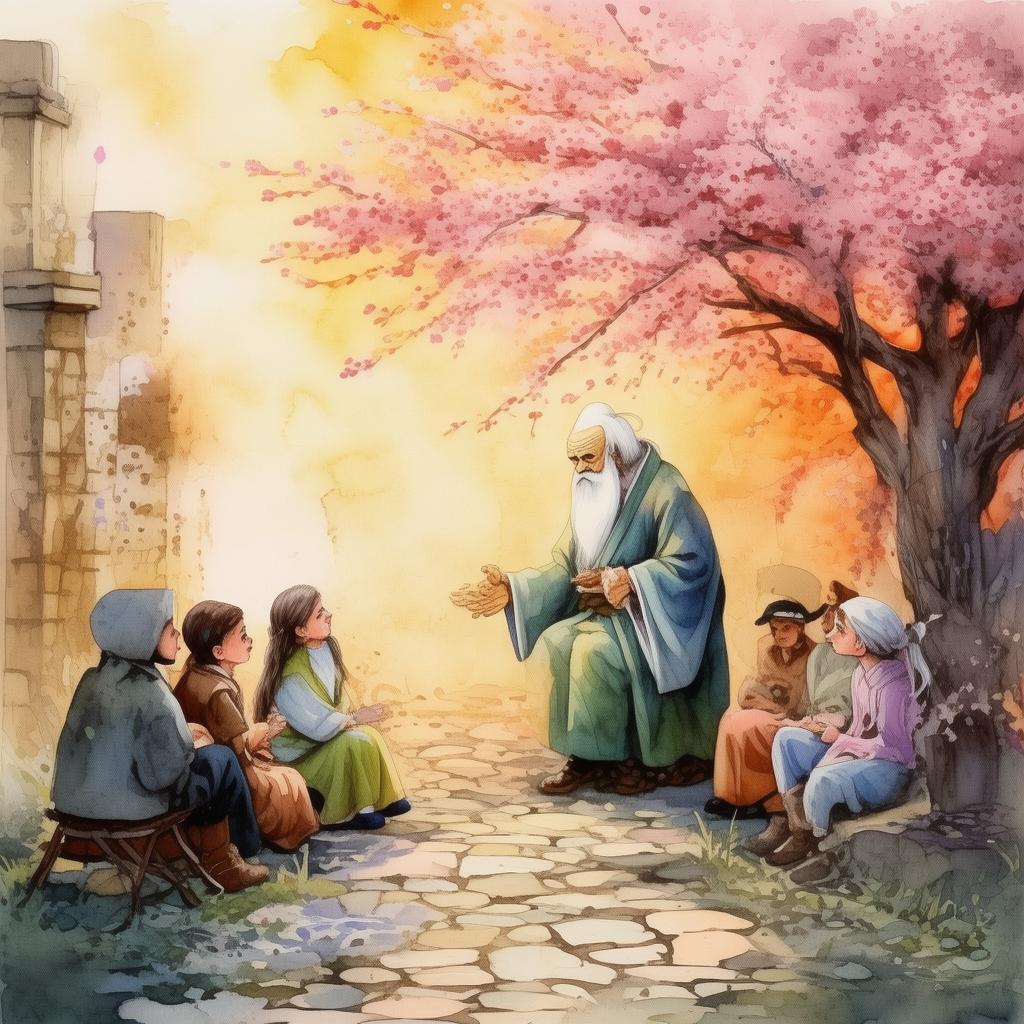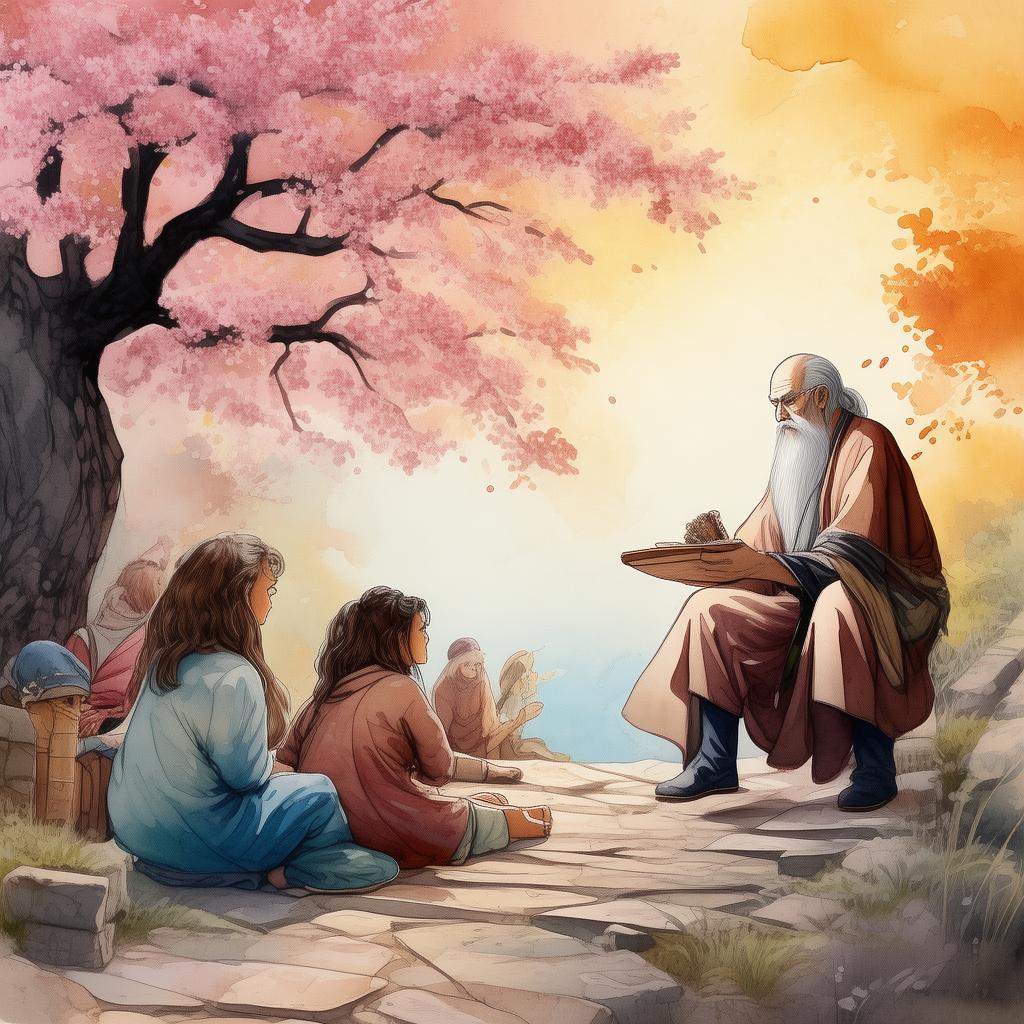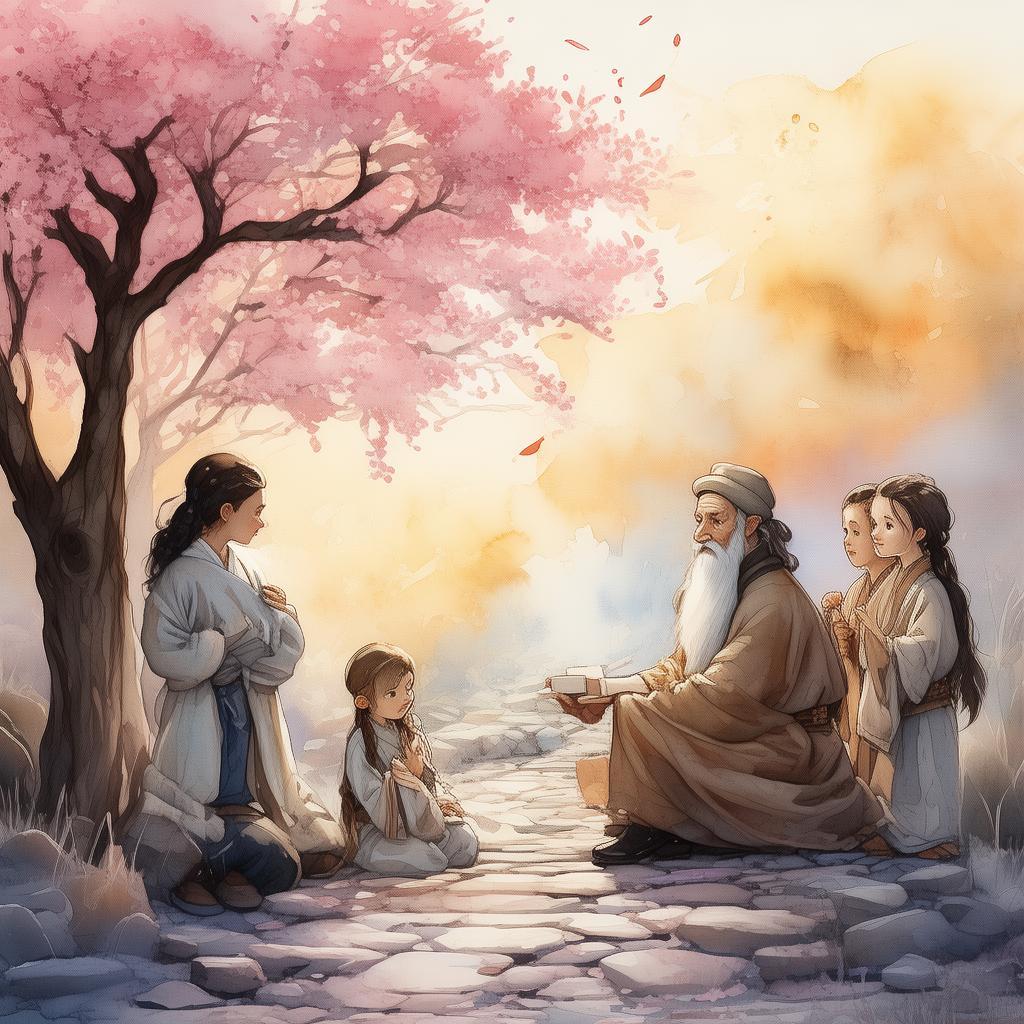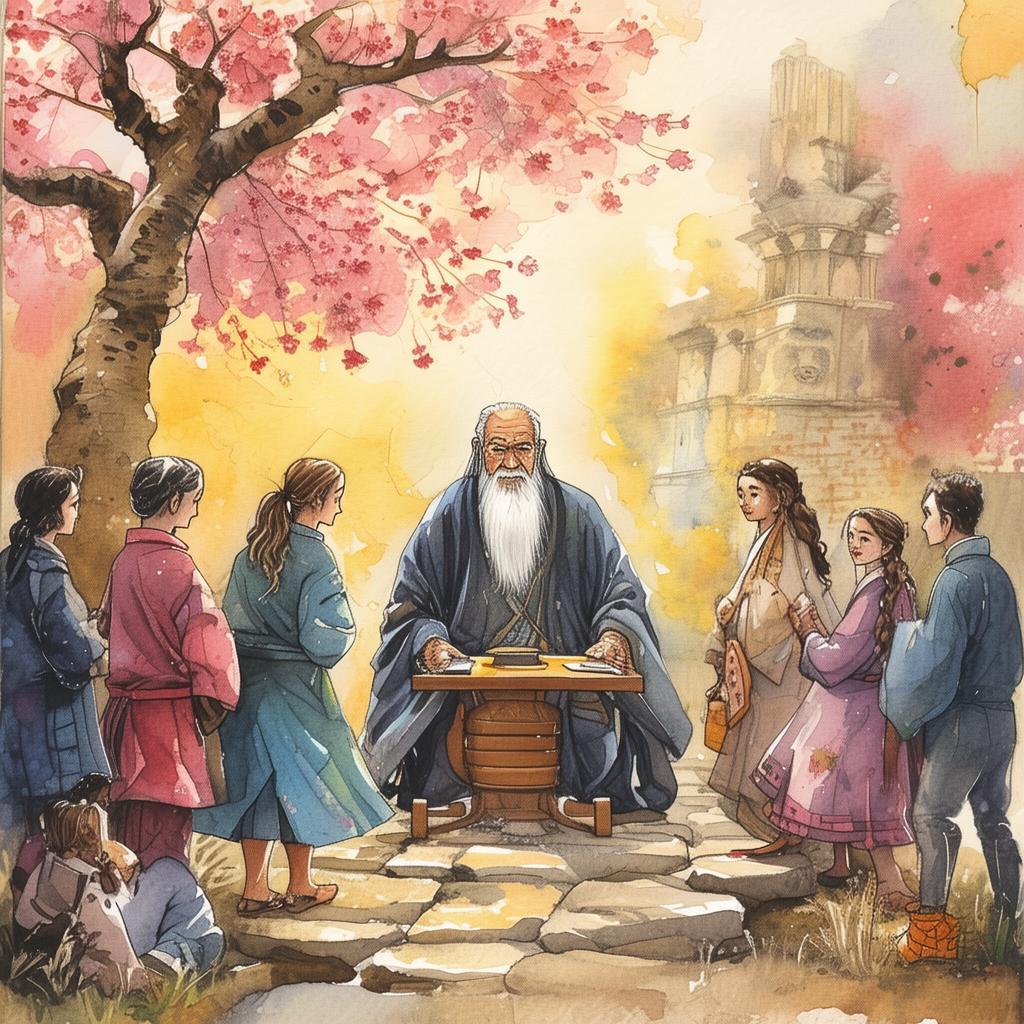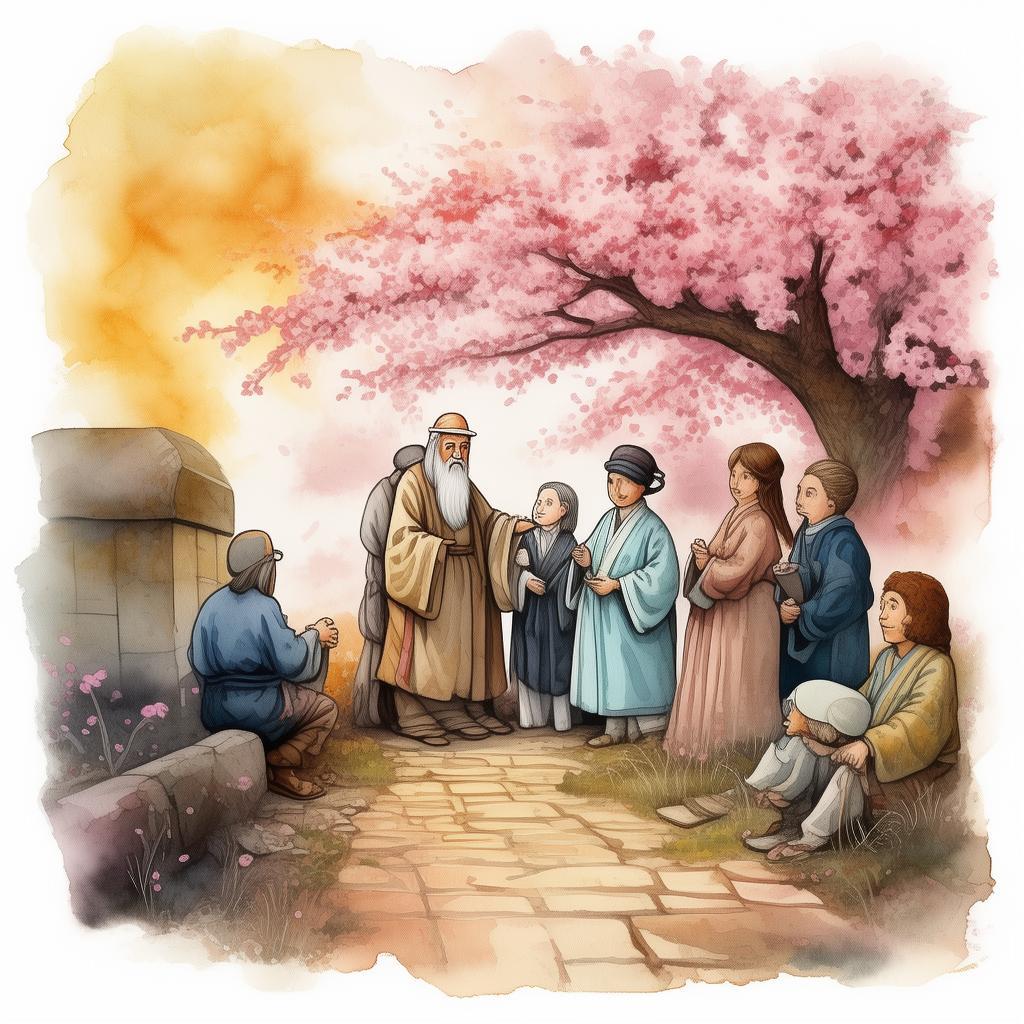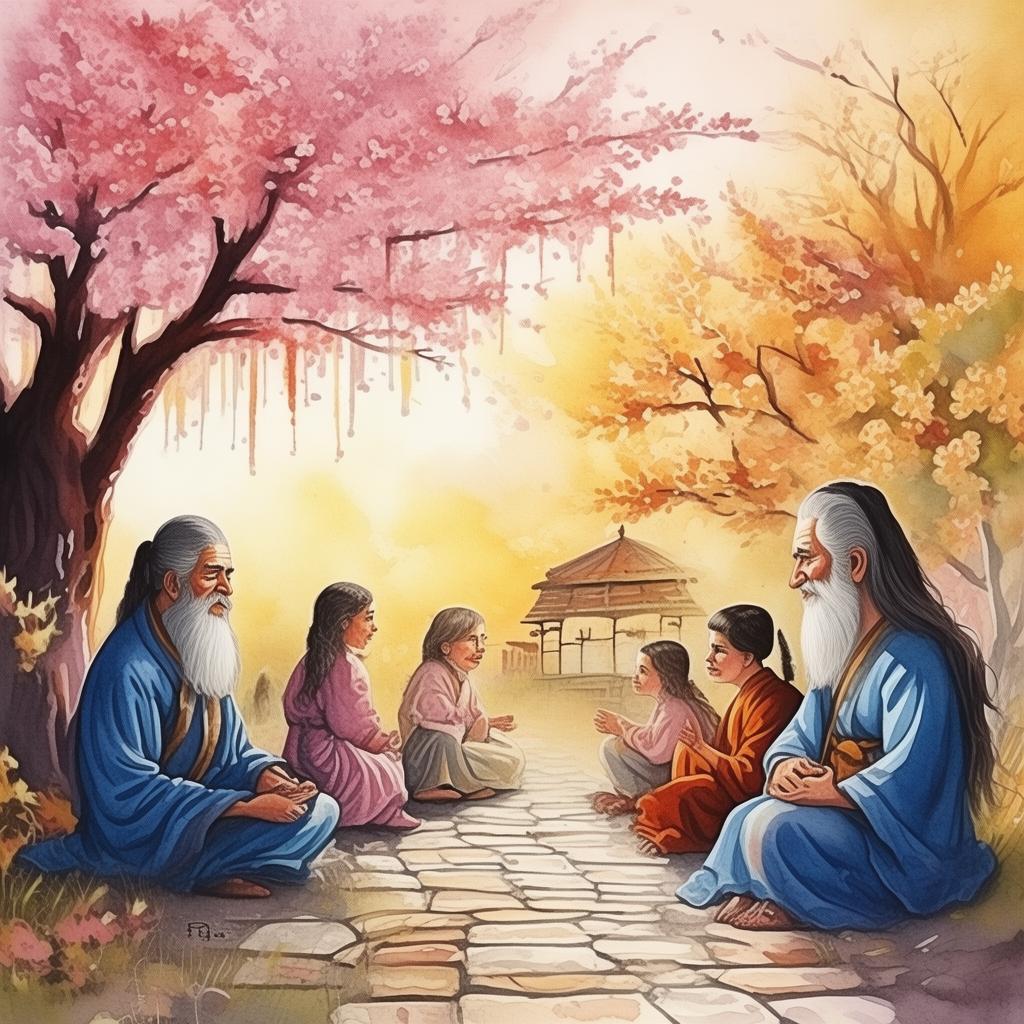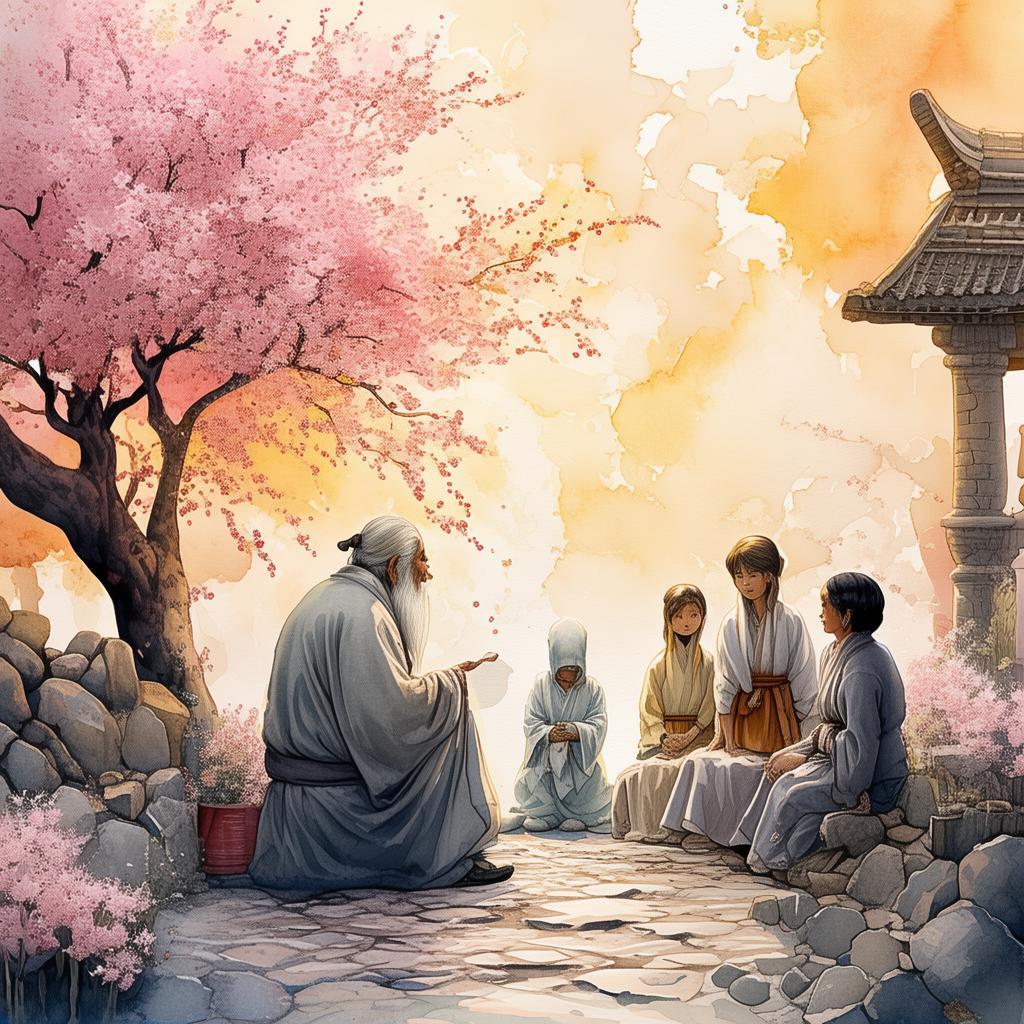The Quest for the Ultimate Philosophical Truth
In the bustling city of Jinghu, a place renowned for its scholars and thinkers, there lived a young philosopher named Yuan. Yuan was not like the other scholars of Jinghu. While they sought fame and fortune through their teachings, Yuan's sole pursuit was the ultimate philosophical truth. He believed that if he could uncover this truth, he would not only find his own enlightenment but also bring harmony and peace to the world.
The legend of the "Philosophical Pander," a mystical artifact said to hold the key to ultimate truth, had long been a subject of much debate and speculation. Yuan had heard tales of the Pander's existence from his mentors and the ancient scrolls he had devoured. He knew that to find the Pander, he would have to embark on a journey filled with moral dilemmas, deception, and the potential to lose himself in the pursuit of truth.
One evening, Yuan gathered his few possessions and set off on his quest. His first stop was the ancient library of the Zhenxin Monastery, where he hoped to find clues about the Pander's whereabouts. As he navigated the labyrinthine halls, he encountered an elderly monk who had spent his entire life searching for the truth.
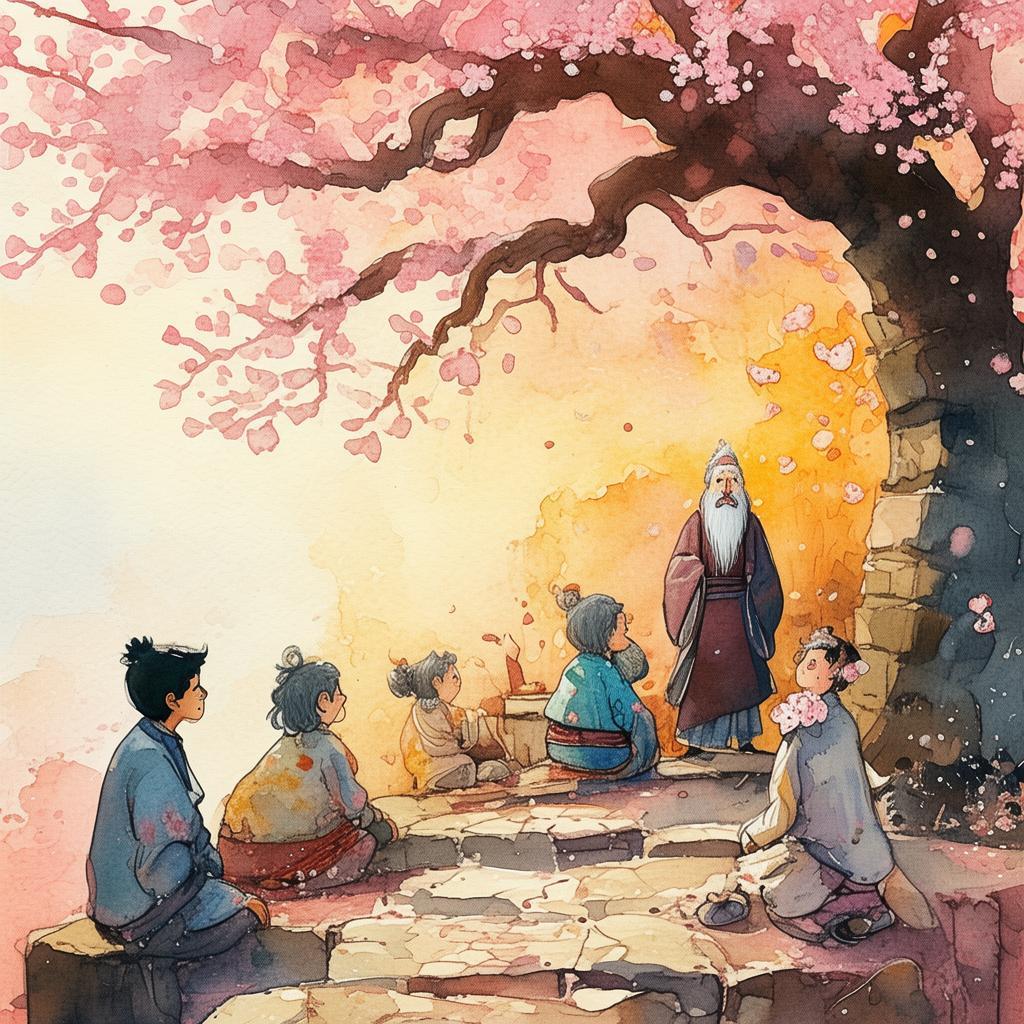
"Are you Yuan?" the monk asked, his eyes twinkling with a mixture of wisdom and weariness.
"Yes," Yuan replied, "I am Yuan. I seek the Philosophical Pander, the key to ultimate truth."
The monk nodded, "So many have sought it, but few have found the true path. The Pander is not a physical object; it is a reflection of the heart and mind of its seeker. To find it, you must first look within."
Intrigued, Yuan followed the monk to a serene courtyard, where he found a large, ornate mirror. The monk instructed him to stand before the mirror and confront his own reflection.
"What do you see?" the monk asked.
Yuan took a deep breath and looked into the mirror. He saw not only his own face but also the faces of the countless philosophers who had sought the Pander before him. Each face held a different expression of hope, despair, and determination. He realized that the Pander was a metaphor for the truth, and the true quest was to find the truth within himself.
As Yuan continued his journey, he encountered various characters who challenged his beliefs and tested his resolve. He met a cunning merchant who offered him a shortcut to the Pander, promising wealth and power in return. Yuan knew that such shortcuts were the quickest way to lose himself in the pursuit of truth.
Then, there was the enigmatic sage who appeared to be Yuan's mentor but was actually a cunning manipulator. The sage convinced Yuan to take a detour to the city of Lishui, where the Pander was rumored to be hidden in the deepest, darkest part of the city.
"I can show you the Pander," the sage said, "but you must first pass a test of character."
Yuan agreed, not knowing that this test would lead him to the darkest depths of his own soul.
In Lishui, Yuan faced a moral dilemma that tested his very principles. A young girl was dying of a mysterious illness, and the only cure was a rare herb that could only be found in a forbidden forest. Yuan knew that to save the girl, he would have to steal the herb, but doing so would compromise his integrity.
After much contemplation, Yuan decided to steal the herb, not because he was a thief, but because he believed that the truth sometimes required difficult choices. With the herb in hand, he returned to the sage, who revealed himself to be the girl's father.
"Thank you, Yuan," the sage said. "You have proven that you are capable of making difficult decisions based on your moral compass."
Yuan returned to the Zhenxin Monastery, where he once again stood before the mirror. This time, he saw not only the faces of other philosophers but also his own face, now filled with newfound wisdom and understanding.
"The Pander is within you," the monk said. "The truth is not something you find; it is something you become."
Yuan smiled, realizing that the ultimate truth was not a destination but a journey. It was a journey of self-discovery, where one must confront their own moral dilemmas and face the consequences of their actions.
As Yuan left the monastery, he knew that his quest for the ultimate philosophical truth was far from over. But he also knew that the journey had changed him forever, and that the truth he sought was not a destination but a state of being.
The Quest for the Ultimate Philosophical Truth was not just a story of Yuan's journey; it was a reflection of the human quest for truth, understanding, and self-discovery. It was a tale that resonated with the universal desire to find meaning in a complex world, and it left readers pondering the nature of truth and the moral choices they would face in their own lives.
✨ Original Statement ✨
All articles published on this website (including but not limited to text, images, videos, and other content) are original or authorized for reposting and are protected by relevant laws. Without the explicit written permission of this website, no individual or organization may copy, modify, repost, or use the content for commercial purposes.
If you need to quote or cooperate, please contact this site for authorization. We reserve the right to pursue legal responsibility for any unauthorized use.
Hereby declared.
